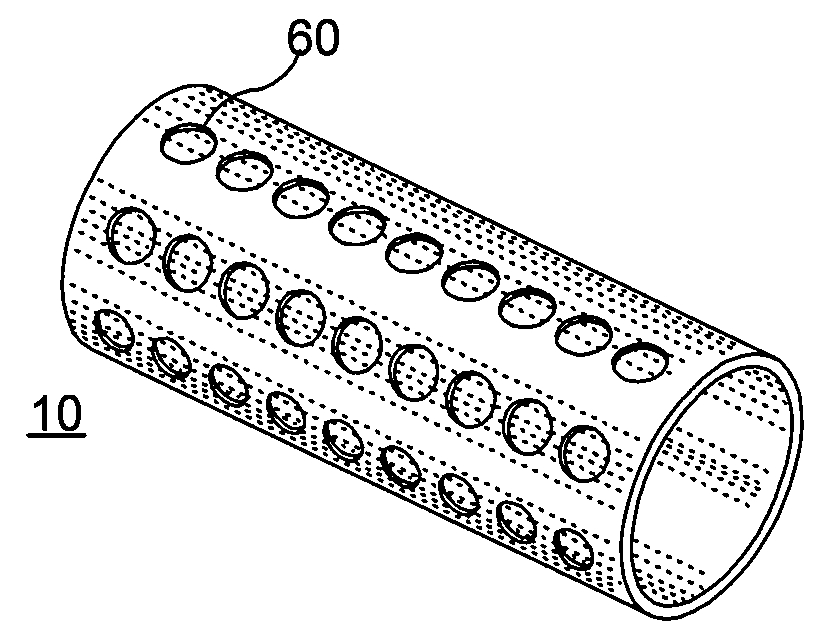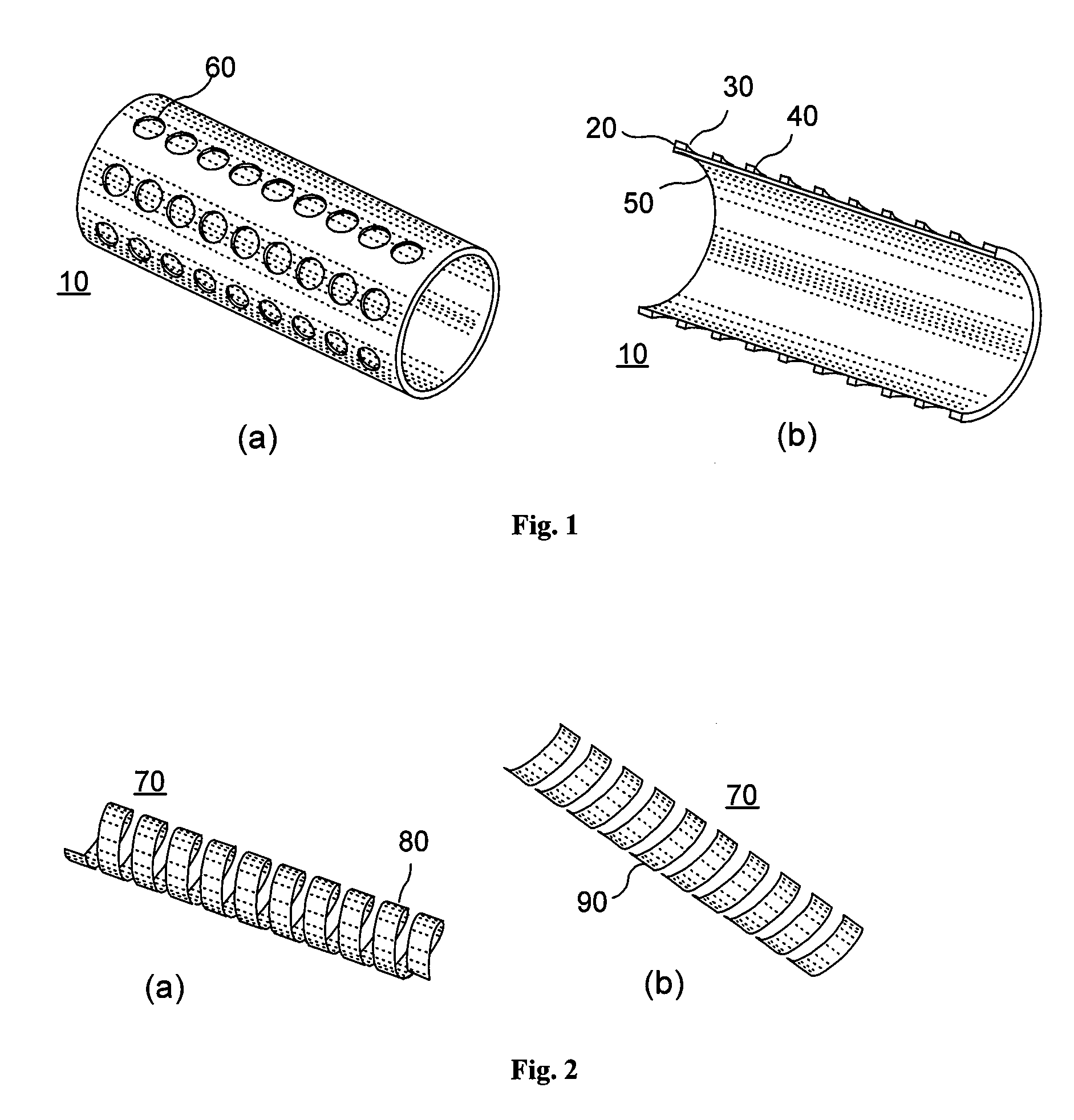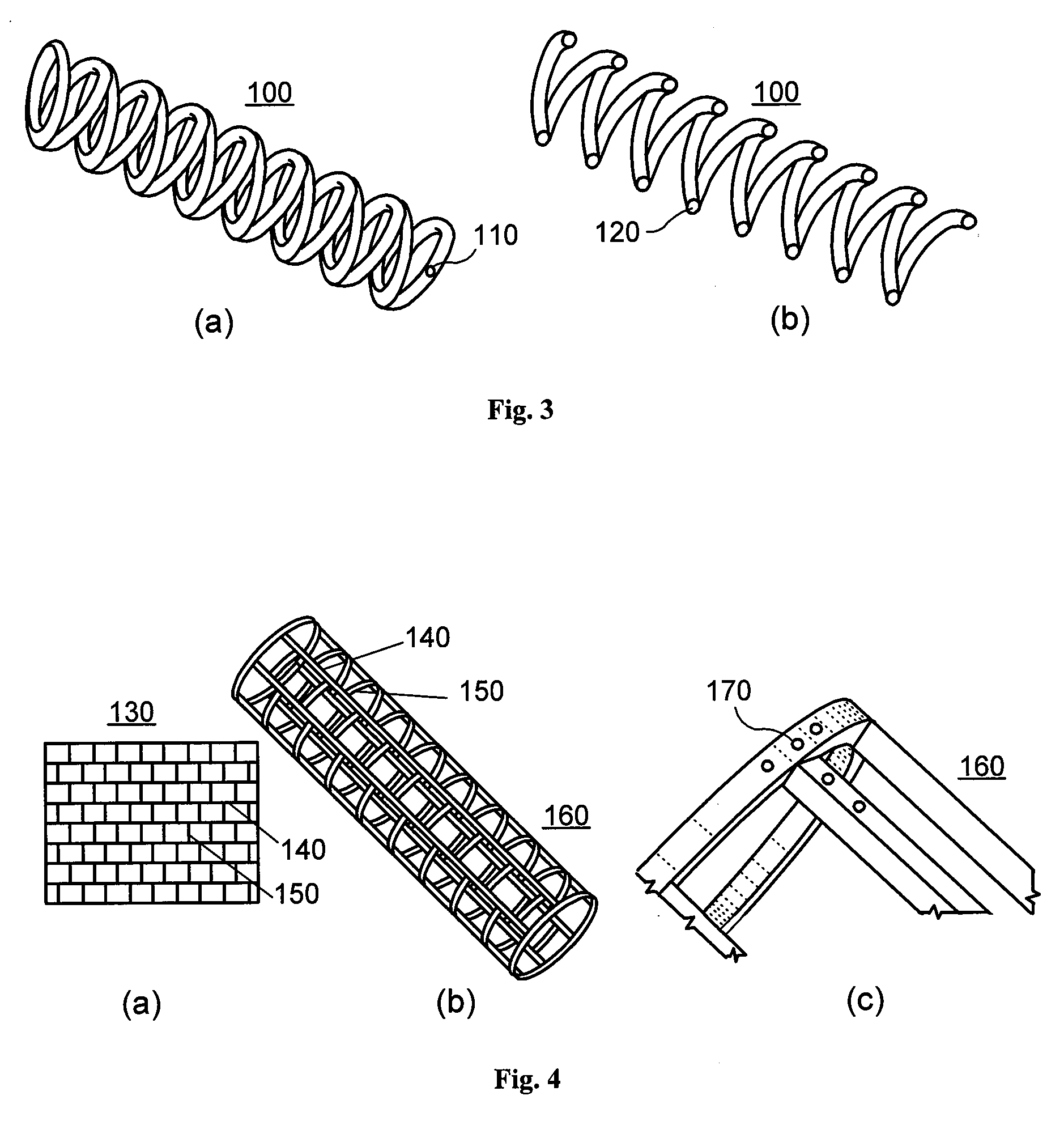Degradable porous implant structure
a porous implant and porous technology, applied in the field of stents, can solve the problems of adverse reactions, thrombosis or inflammation, prior art materials containing significant drawbacks in biocompatibility, functionality or efficacy, etc., and achieve the effect of efficient provision of active agents
- Summary
- Abstract
- Description
- Claims
- Application Information
AI Technical Summary
Benefits of technology
Problems solved by technology
Method used
Image
Examples
Embodiment Construction
[0017]There may be a need for an improved implant, e.g. a stent, which may be capable of an efficient provision of an active agent.
[0018]According to an exemplary embodiment of the present invention, an implant, e.g. a stent, can be at least partially biodegradable and which may have at least one section made of a material having a structure comprising a plurality of material particles, which particles are arranged in a matrix structure embedding a plurality of pores thus forming an open porous structure, whereas the material particles may be joined at contact surfaces to adjacent material particles, wherein an average size of the pores is larger than an average size of the material particles.
[0019]In any exemplary embodiment of the present invention substantially some or all sections of the stent can be made of a material having a structure comprising a plurality of material particles made of a biodegradable material.
[0020]Open porous can mean that, e.g., the pores are interconnect...
PUM
 Login to View More
Login to View More Abstract
Description
Claims
Application Information
 Login to View More
Login to View More - R&D
- Intellectual Property
- Life Sciences
- Materials
- Tech Scout
- Unparalleled Data Quality
- Higher Quality Content
- 60% Fewer Hallucinations
Browse by: Latest US Patents, China's latest patents, Technical Efficacy Thesaurus, Application Domain, Technology Topic, Popular Technical Reports.
© 2025 PatSnap. All rights reserved.Legal|Privacy policy|Modern Slavery Act Transparency Statement|Sitemap|About US| Contact US: help@patsnap.com



